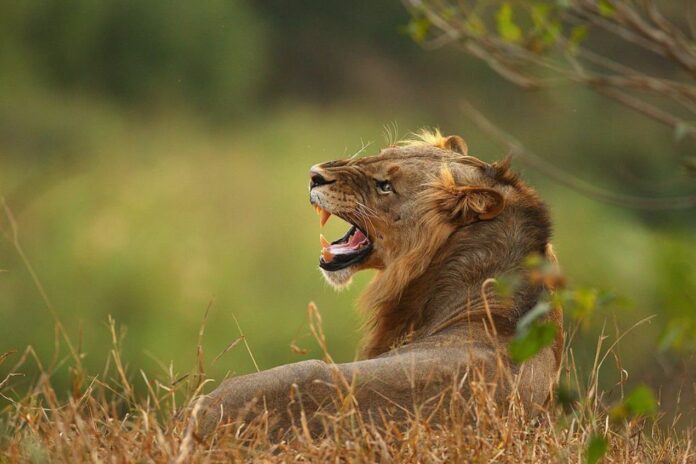As people get richer, they tend to have a greater tolerance for large felines and other carnivorous animals.
Rapid economic expansion has driven rare species of large predators to the verge of extinction, but ecologists believe the human desire to coexist with big cats is growing.
Researchers at the University of Reading looked at 50 species of big predators’ global trends during the last fifty years.
They found that social and economic factors, like the quality of life, were more linked to the decline of large carnivore species than environmental factors, like habitat loss.
The first-of-its-kind research argues that the most effective strategy to rescue carnivores like lynx, bears, and lions is to promote a sustainable model of social and economic growth, as opposed to concentrating only on concerns like climate change. As people get more money, they are less afraid of big cats and other meat-eating animals.
“Our habitat and climate has become degraded and chaotic to make way for rapid economic development,” remarks lead author Dr. Thomas Frederick.
“We know this has driven biodiversity declines, but our research found that this economic development is causing far more extreme declines than anyone expected and imagined.
In the midst of fast growth, humans tend to become less tolerant of carnivores, confrontations burst, and they “suspect that incidences of poaching and persecution rocket.”
There has been a dramatic loss of huge carnivores. More than 90% of the area where lions and tigers formerly roamed is already devoid of these animals. Many native UK carnivores, including the lynx, wolf, and bear, have been wiped off through hunting, according to the author.
In the study, which was published in Nature Communications in collaboration with the UK Centre for Ecology & Hydrology and the Argentinian Instituto de Biologa Subtropical, the research team looked at how changes to the social and economic system could help carnivore populations recover.
Rapid economic growth, while endangering many species, has also greatly improved our standard of living. However, according to research by Dr. Johnson and other ecologists, as economic development slows and people attain a high quality of life, there is a chance for persecuted species to recover.
The researchers believe that more peaceful coexistence between humans and carnivores is a contributing factor to the comeback, in addition to better habitat conservation in developed countries. What was formerly seen as a potentially harmful insect is now understood to be a crucial part of our culture and environment.
Large carnivores are already making a comeback in western Europe. Since the 1960s, the number of grey wolves has increased by 1,800% because of better living conditions and slower economic growth.
According to Dr. Johnson, this offers us hope that we can rebuild our destroyed ecosystems and that maybe someday extinct animals will make a comeback to British soil. But we also need to consider how we may prevent species extinction in nations that are now enjoying fast economic expansion.
“Our results suggest that a slower, more sustainable, economic model can protect carnivore populations, but this also risks locking people into poverty for longer. We urgently need to develop solutions that can support both biodiversity and people, and perhaps the world’s advanced economies need to offer more financial aid to protect our global biodiversity.”
Image Credit: Getty
